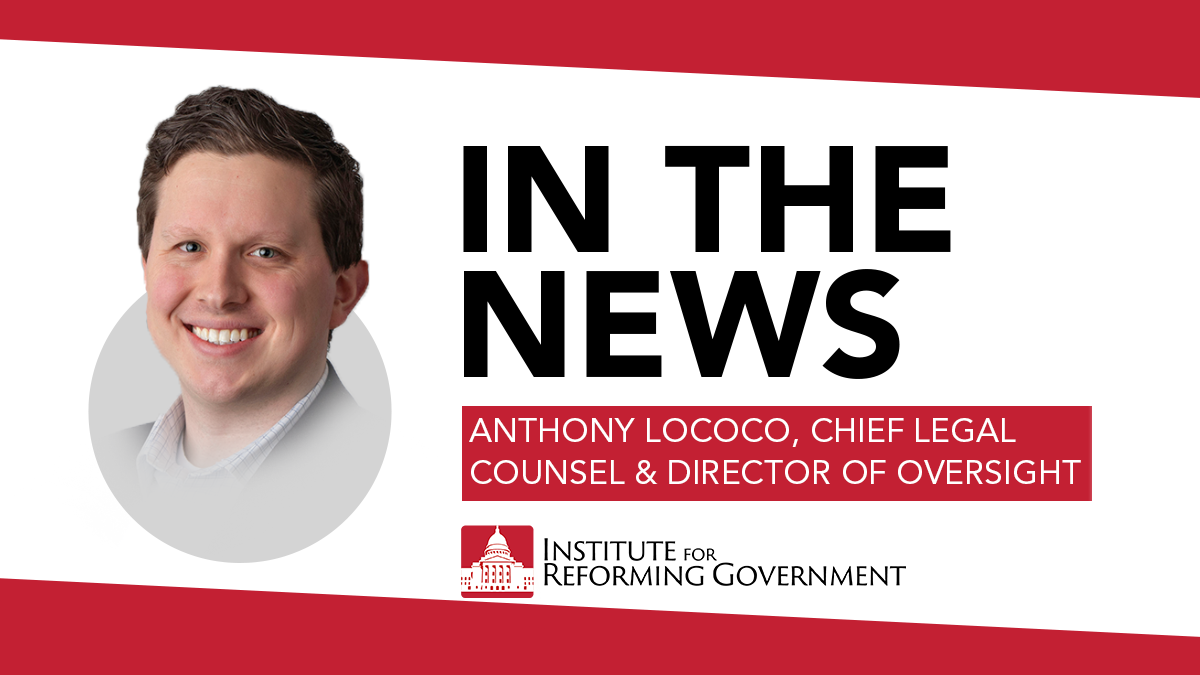The following piece authored by Anthony LoCoco originally ran in the Wisconsin State Journal on February 17, 2023.
But legislators need not resign themselves merely to battling Evers’ veto pen and promising change in 2026. They can — and should — make the most of the coming years by engaging in meaningful legislative oversight of the Evers administration.
When people talk about investigatory oversight, it’s typically in the context of congressional activity. It’s common to turn on the television and see hearings in which executive branch officials are brought before House or Senate committees to provide information on matters of public concern or answer for potential misconduct. These inquiries often result in public clamor for reform, sometimes inducing change on the part of the executive that would not have been possible in the absence of the oversight initiative.
But we aren’t used to seeing the same kind of accountability take place in Madison, at least in terms of vigor, frequency and visibility. Why not?
It isn’t because of differences in the structure of federal and state government. Just as at the federal level, the sprawling Wisconsin administrative functions are for the most part implementing legislative priorities. The Legislature has the constitutional prerogative and duty to ensure that state agencies are following the Legislature’s orders. Play Video As part of his upcoming biennial budget proposal, Gov. Tony Evers wants to use part of the state’s $7 billion surplus to keep the Milwaukee Brewers franchise in Milwaukee.
Nor is it because the Legislature lacks the tools. As former state Supreme Court Justice Daniel Kelly explains in “The Lawmaker’s Manual for Legislative Oversight” (which my organization, the Institute for Reforming Government, published), legislators have ample means at their disposal for investigating executive activities, including requesting or compelling documents or testimony and conducting formal hearings.
And finally, it isn’t for lack of opportunity. No one thinks Wisconsin’s agencies or local government entities are batting a thousand. For example, just this month IRG released an interactive database allowing taxpayers to see how Wisconsin school districts are allocating the unprecedented $1.5 billion of federal funding they received during the COVID-19 pandemic. Initial data suggests districts are using funds without required state agency oversight, exceeding budgets and misspending funds.
Oversight helps uncover the extent of these problems and get expenditures back on track. This is just one issue of potentially thousands involving government mismanagement requiring the Legislature to step in and create the conditions for real accountability.
The reason that legislative oversight remains an untapped resource in Wisconsin probably has something to do with Newton’s first law of motion: A (legislative) body at rest will stay at rest until acted upon by an outside force. That is, once the Wisconsin Legislature crosses the threshold obstacle of inertia and begins engaging in repeated and consequential oversight, it will improve at doing so, and the activity will become a key and expected part of its institutional role.
Until then, the potential of oversight remains unrealized. So an outside force is needed. That is why this year IRG will be launching the Center for Investigative Oversight. We intend to identify areas where oversight is needed, call for action and serve as a resource for those demanding greater insight into how Wisconsin’s executive branch is using taxpayer dollars.

